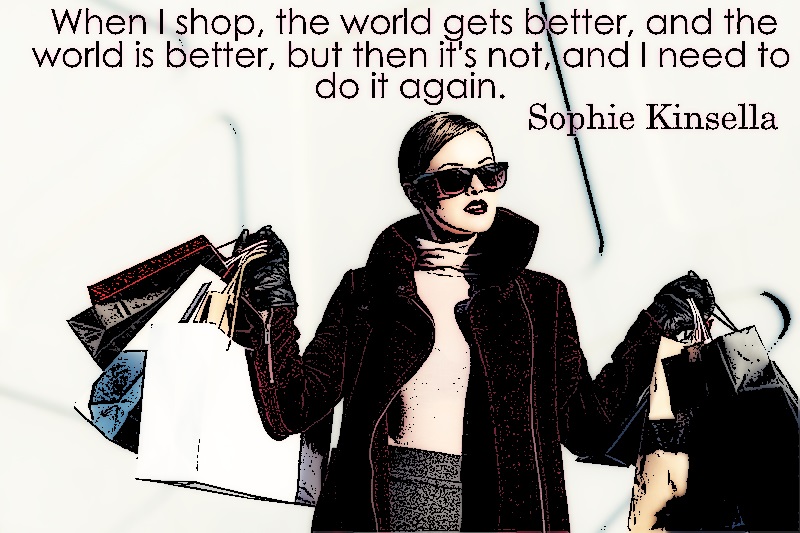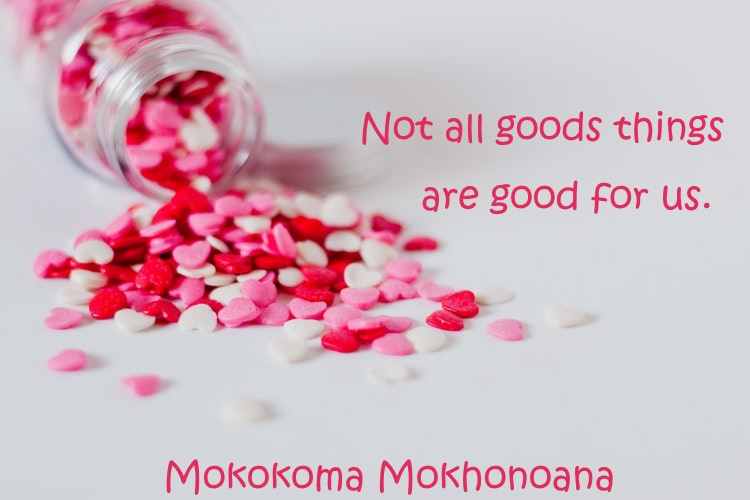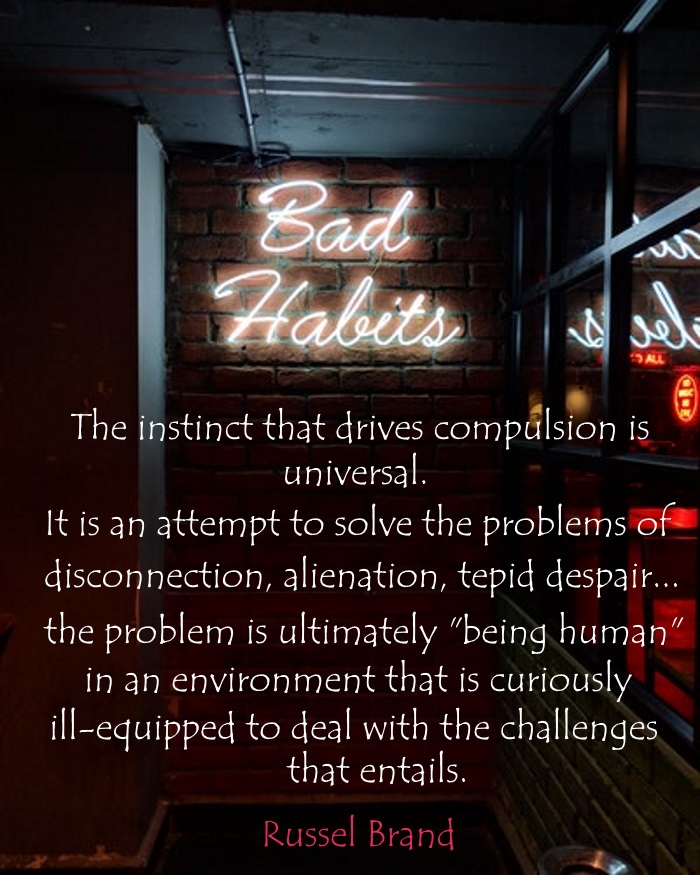
It’s hard for me to pin down the exact reason why I hate shopping. I think it’s a combination of the crowds, the lack of parking, the pushy salespeople, and the need to part with my hard-earned cash. Don’t mistake this for miserliness – I spend more on other people than I do on myself. And while I do love the thrill of having something new and finding exactly what I want, I am a lot more addicted to fries than shopping.
This usually means that walking into a store and not purchasing anything is generally easy enough for me to do. There might be the temptation to splurge a little, but I immediately run through a few quick calculations in my head: Mortgage payment + bills + food + kitty stuff + fun = No Guess purse today, sweetheart. So I put the beautiful, shiny black tote bag back on the shelf, slowly back away, and walk out. Does it hurt to put it back? Yes. Do I really want it? Yes. Should I get it? Meh, probably not. The problem is that for people with a shopping addiction, the siren call of a new pair of shoes or gadget is too difficult to resist. And while a shopping addiction may seem like the least of all evils, research we conducted at Queendom indicates that there’s more to this vice than a financial burden.

Analyzing the personality and shopping behavior of 2,911 participants who took our Shopaholic Test, we discovered that shopaholism can affect more than a person’s bank account – it also impacts their mental health and relationships. According to our study, shopaholics are more likely to:
- Shop as means to escape from stress and reality in general. This is a problem for a number of reasons, the most prominent being that if you refuse to face hardship, you’ll never be able to develop the skills and the resilience to overcome it.
- Struggle with extreme guilt after the adrenaline “high” of a purchase wears off.
- Lie to family and friends about how much they spend when they shop.
- Hide purchases from family and friends.
- Have an obsessive fixation on fitting in, even if means spending money they don’t have on the latest fashion or gadgets.
- Have a dismissive attitude toward wastefulness, often buying things they never use or having loads of stuff lying around the house that still have price tags on them.

In terms of the financial consequences of a shopping addiction, our study also indicates that shopaholics are more likely to:
- Shop even when they can’t afford to.
- Spend more on luxuries than necessities like food, utilities, and rent/mortgage.
- Borrow from the bank or from friends/family in order to buy something they really want.
- Have several maxed out credit cards due to shopping sprees.
An addiction isn’t a stand-alone issue – there is always an underlying trigger. If a person says, “I like shopping because it makes me feel happy,” I in turn wonder whether there’s a bigger problem in their life they are trying to ignore, or whether they are trying to detach themselves from unpleasant emotions. The bottom line is that an addiction, whether it be to shopping or gambling or drugs, is a form of escapism, and until a person faces the issue – be it stress, sadness, guilt, loneliness, etc. – it will be very difficult to break the habit.
Although a shopping addiction may seem harmless, the financial, emotional, and relationship consequences will devalue any designer bag or iPhone.

Insightfully yours,
Queen D

